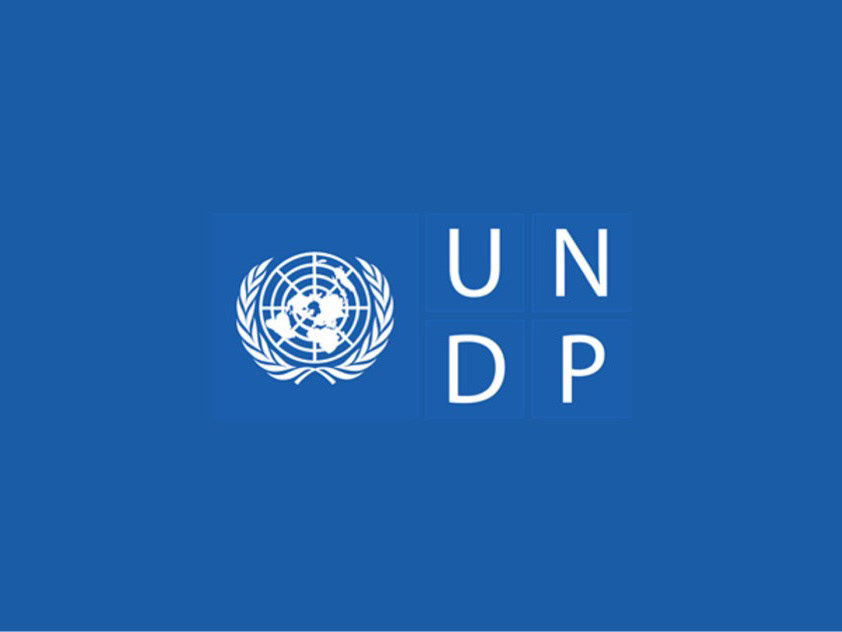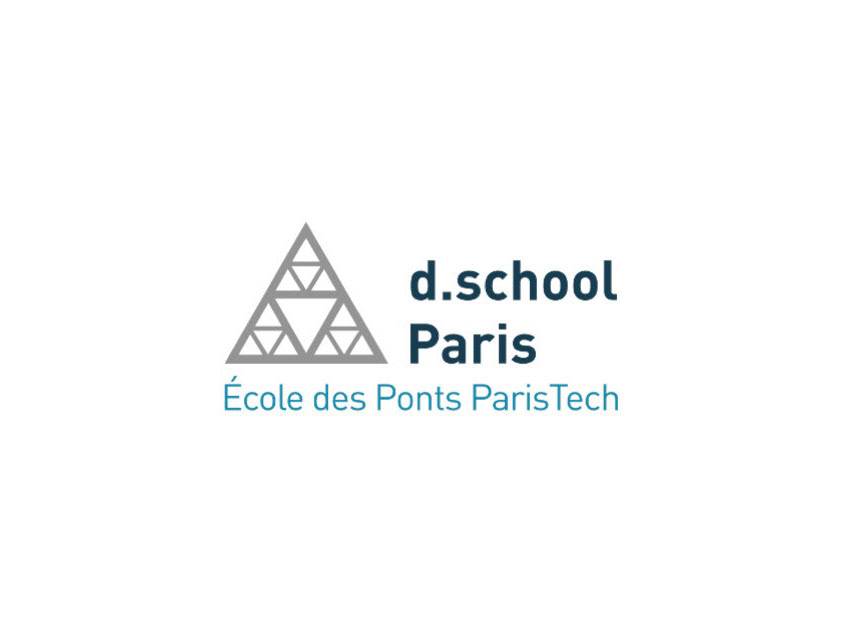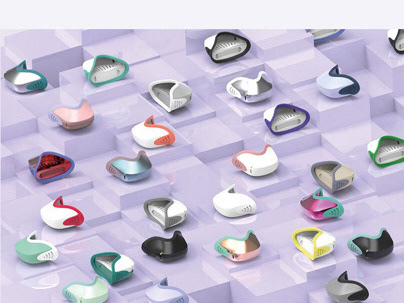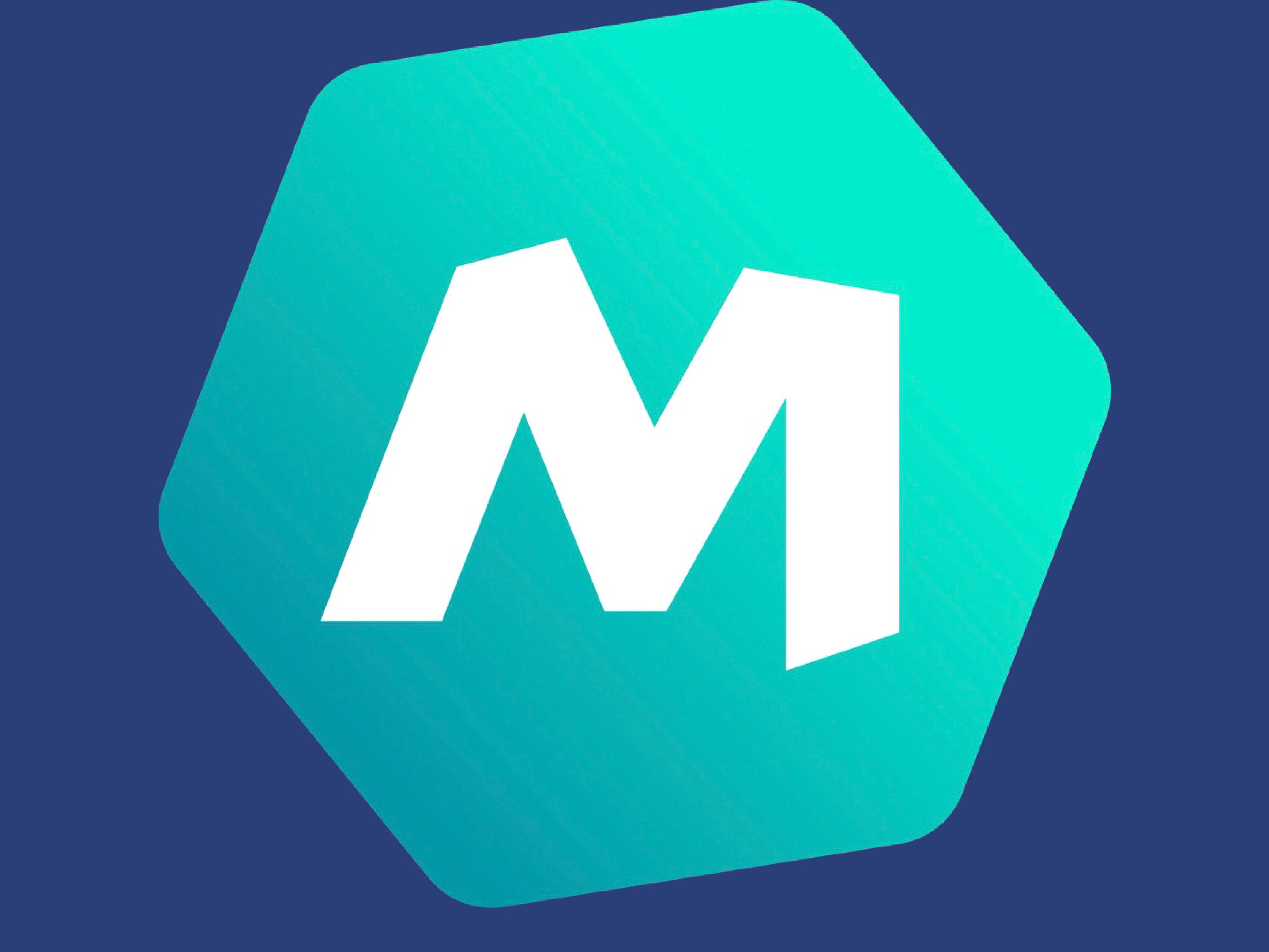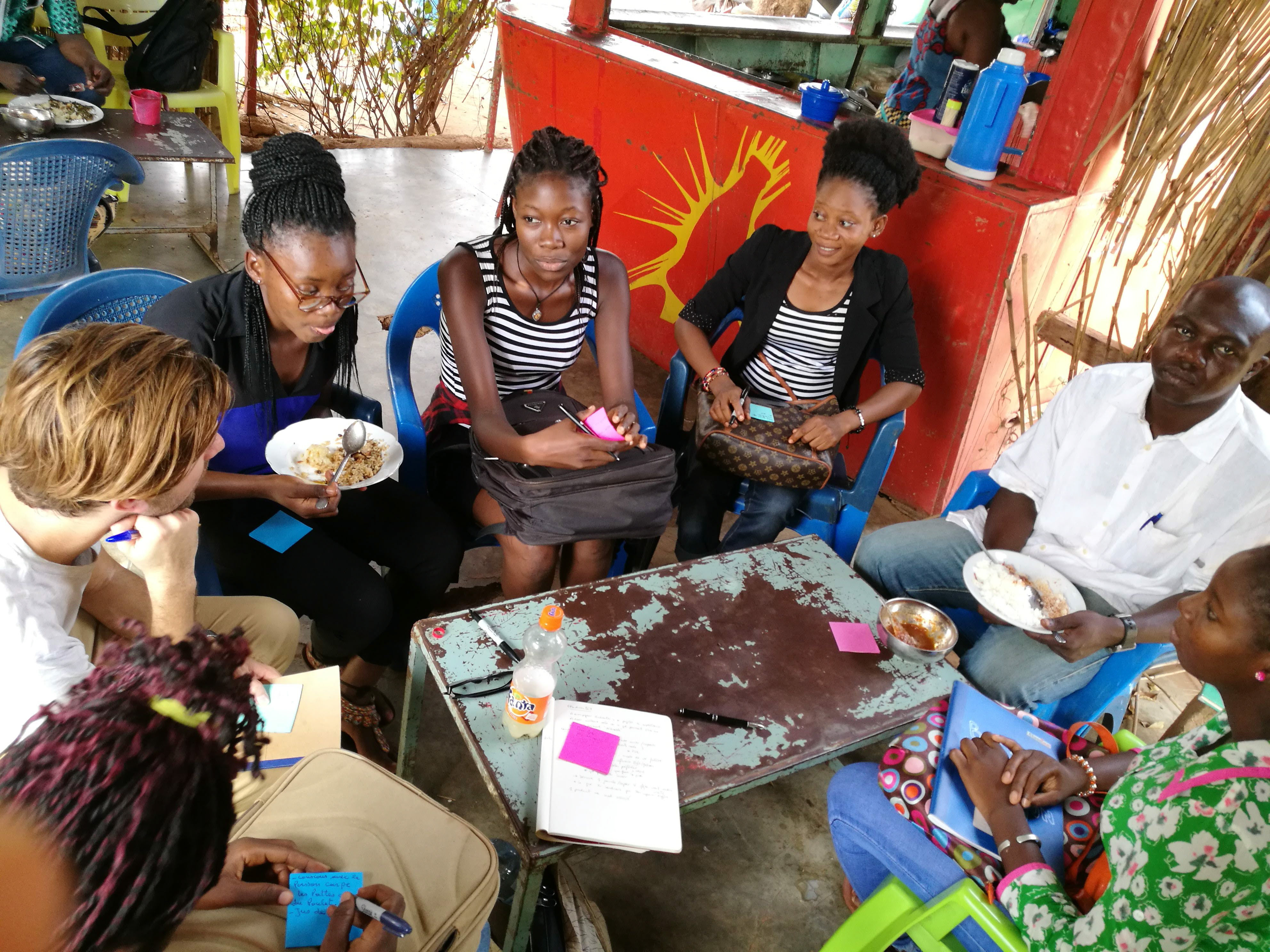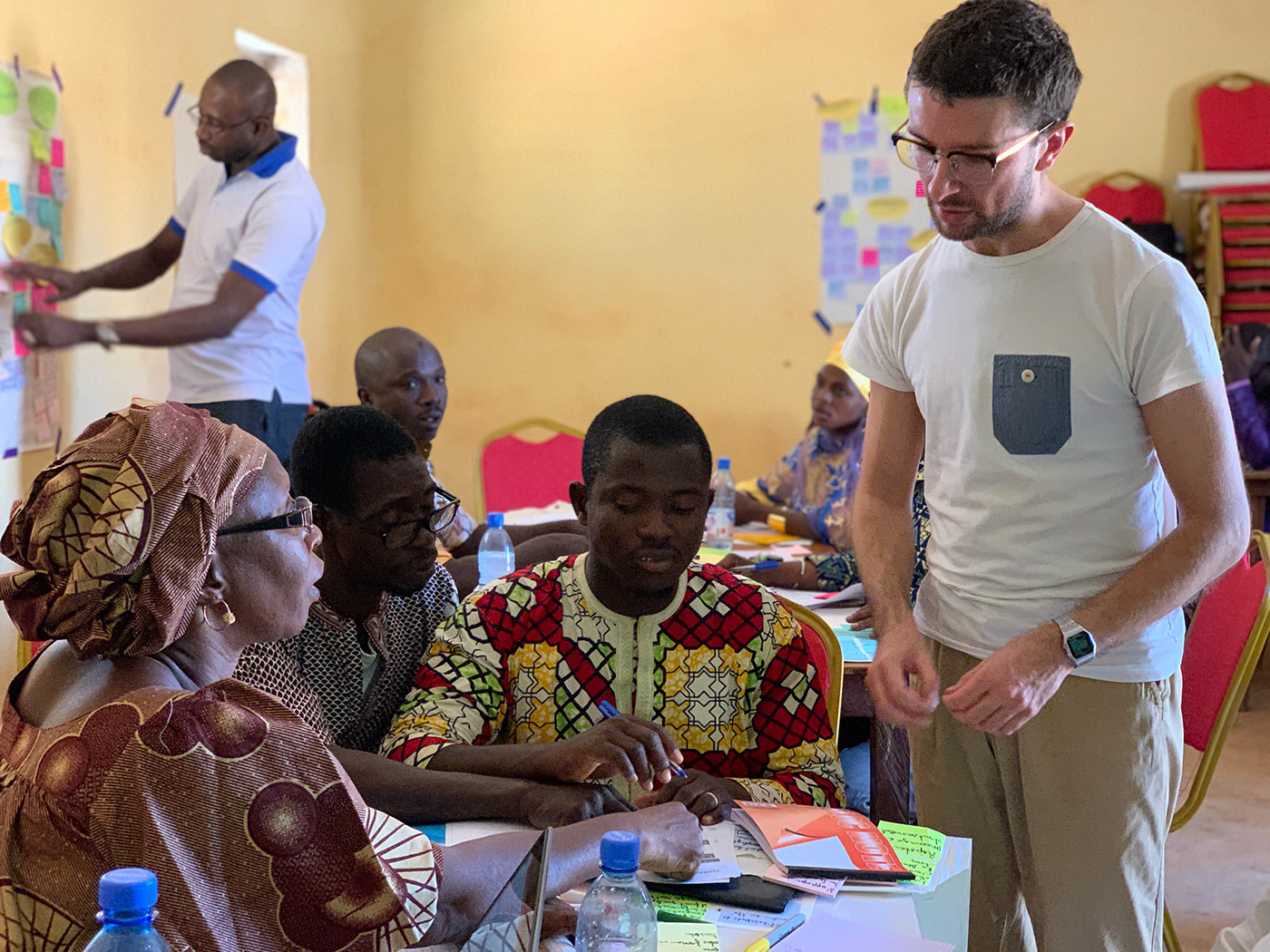Client: Breakthrough ACTION | Year: 2020
Context
In partnership with Breakthrough ACTION, our team supported an initiative aimed at improving how data is used to inform social and behavior change programming in Guinea. Building on a prior phase of user research, we were tasked with developing a practical, scalable Data for Decision-Making (D4DM) toolkit that would empower healthcare stakeholders across the country to make better-informed, data-driven decisions.
In partnership with Breakthrough ACTION, our team supported an initiative aimed at improving how data is used to inform social and behavior change programming in Guinea. Building on a prior phase of user research, we were tasked with developing a practical, scalable Data for Decision-Making (D4DM) toolkit that would empower healthcare stakeholders across the country to make better-informed, data-driven decisions.
Goals
Our objective was to co-create a robust, user-centered toolkit that would support Ministry of Health actors and NGO partners in identifying, interpreting, and applying data to guide programmatic decisions. The ultimate aim was to enhance the effectiveness of health interventions and ensure that resources were allocated based on real, actionable insights.
Our objective was to co-create a robust, user-centered toolkit that would support Ministry of Health actors and NGO partners in identifying, interpreting, and applying data to guide programmatic decisions. The ultimate aim was to enhance the effectiveness of health interventions and ensure that resources were allocated based on real, actionable insights.
Methods
To anchor the toolkit in the needs and realities of its users, we organized a co-design workshop that brought together representatives from the Ministry of Health, national NGOs, and international partners. As lead facilitator, I guided the group through participatory sessions focused on identifying pain points in current data practices, uncovering opportunities for improvement, and collaboratively envisioning practical solutions.
To anchor the toolkit in the needs and realities of its users, we organized a co-design workshop that brought together representatives from the Ministry of Health, national NGOs, and international partners. As lead facilitator, I guided the group through participatory sessions focused on identifying pain points in current data practices, uncovering opportunities for improvement, and collaboratively envisioning practical solutions.
The workshop generated a strong set of concepts and recommendations, which we distilled and translated into the structure and content of the D4DM toolkit. Throughout the process, we ensured that the tools reflected both the technical and contextual needs of the diverse stakeholders involved.
Outcome
The resulting toolkit was successfully disseminated at the national level, equipping key actors across the health system with tools to better leverage data in their decision-making processes. Its adoption has contributed to more informed planning, improved targeting of health interventions, and more efficient resource allocation.
The resulting toolkit was successfully disseminated at the national level, equipping key actors across the health system with tools to better leverage data in their decision-making processes. Its adoption has contributed to more informed planning, improved targeting of health interventions, and more efficient resource allocation.
In addition to the toolkit’s tangible impact, the co-design process helped cultivate a culture of collaboration and shared ownership across the healthcare ecosystem. By creating space for dialogue and co-creation, the initiative strengthened relationships between institutional stakeholders and enhanced their collective ability to drive change from within.
This project exemplifies the power of participatory design in unlocking long-term value—both in terms of tools created and in the capabilities built among those who will use them.
Testimonial
"Ben consistently demonstrated an impressive understanding of user-centric methodologies and behavioral design principles, which greatly contributed to the success of our projects. His ability to navigate the complexities of the Francophone African market with respect and acknowledgement of his role as a Designer was invaluable. This ensured that our solutions were not only innovative but also culturally relevant and impactful. He approached every task with enthusiasm, creativity, and meticulous attention to detail, producing high-quality work under tight deadlines. His collaborative nature and strong communication skills fostered a positive team dynamic, making them a pleasure to work with."
- Juanita Rodriguez, Senior Strategic Designer
"Ben consistently demonstrated an impressive understanding of user-centric methodologies and behavioral design principles, which greatly contributed to the success of our projects. His ability to navigate the complexities of the Francophone African market with respect and acknowledgement of his role as a Designer was invaluable. This ensured that our solutions were not only innovative but also culturally relevant and impactful. He approached every task with enthusiasm, creativity, and meticulous attention to detail, producing high-quality work under tight deadlines. His collaborative nature and strong communication skills fostered a positive team dynamic, making them a pleasure to work with."
- Juanita Rodriguez, Senior Strategic Designer

